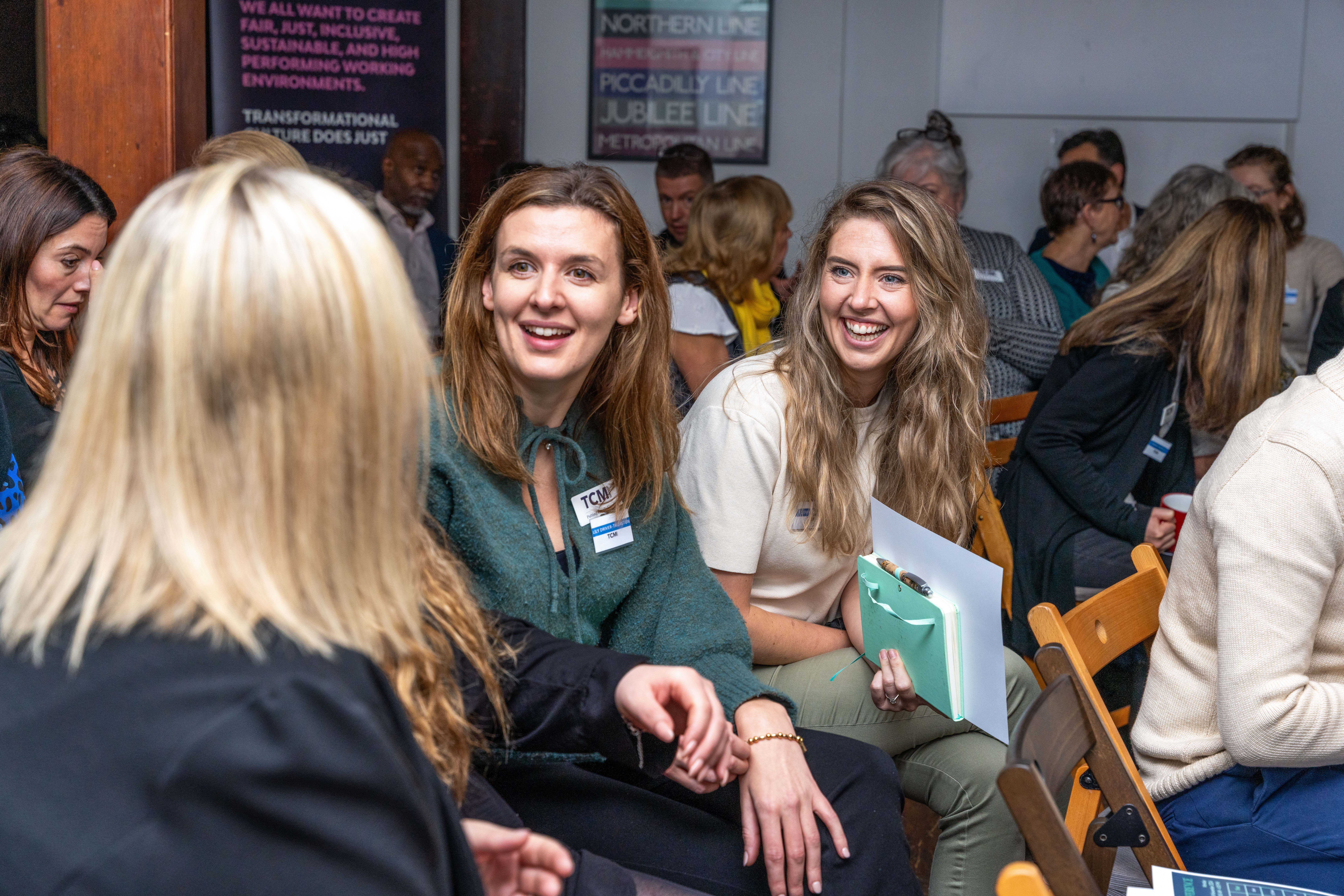
Share article:
Tags:
All significant things that happen in an organisation are underpinned by, and reliant on, communication or dialogue. Recruiting and training, performance management, purchasing, finance, logistics, dealing with customers, deciding strategy, holding each other to account, providing direction or support, and problem-solving are all examples. And yet organisations systematically inhibit communication through hierarchical structures, power and status differences, the physical layout of working places, rules, an inability to truly understand and value difference, and many leaders view communication as a major problem. Some go as far as to say that poor communication is at the heart of all organisational problems.
In a period where employee experience is ever more important and linked closely with organisational output and productivity, where hybrid and virtual working is stretching the workforce in new ways, where staff well-being, and particularly the issues of maintaining positive mental health, is much more widely recognised and managed as a key organisational responsibility, the ability to communicate well is critical.
How can we communicate more effectively?
In his book, Transformational Culture (2021) David Liddle highlights that the ability to communicate with care, compassion and understanding is a key enabler to delivering a transformational culture. Helpfully he lists the following communications behaviours to guide leaders to deliver on this:
- Communicate in a way that allows the other person to hear and understand what you are saying with the aim of avoiding attacking, blaming or judging each other.
- Be open, honest and authentic. This may require us to show our vulnerabilities and rely on being courageous enough to do this.
- Ask a wide variety of open questions to seek out clarification and meaning.
- Listen to understand, not to defend.
- Build empathy and work on the ability to put yourself in the other persons shoes.
- Respond to what you are hearing and avoid reacting to what we think is being said.
Crucially several of these points are essentially about listening which always reminds me of the wonderful old phrase: I wonder how many of us view conversation as a competitive sport in which the first person to draw breath is declared the listener? And I wonder how many organisations see communication as a simple process of transmission and forget the importance of listening to ensure understanding?
Listening is just as important as talking
We are often told to employ active listening to help us in this often-overlooked skill, but this is not always provided with advice about how to do it. Perhaps the most effective way to improve your ability to listen is to pay attention to what psychologist’s call ‘attending behaviours’ both in a physical and psychological sense. Physical attending involves you as the listener adopting an attitude of involvement and showing the speaker that you are with her just by your physical attitude or posture. Examples of this are:
- Facing the speaker squarely
- Maintaining good eye contact
- Keeping an open posture
- Leaning towards the speaker
- Remaining relatively relaxed
However, it is one thing to be aware of what is involved but another to put it into practice and concentrating on a single point for a period and judging your reactions in comparison to previous behaviour will help ensure you can behave in an authentic and attentive way.
Psychological attending involves not only listening to what the speaker says but also focussing on her non-verbal behaviour. How it is being said through facial expressions, body posture, use of hands and other physical indicators. And concentrating on:
- What is being said
- Listen for the central theme rather than the facts
- Keep an open mind
- Think ahead
- Analyse and evaluate
- Don’t interrupt
- How it is being said
- Interpret tone of voice
- Evaluate the non-verbal signs
- What is not being said
- Ask the right questions to ensure you hear the full story.
To be open-minded and curious enough to listen for these things demands something which many people find exceedingly difficult: not interrupting! The single act of not interrupting is likely to reap its reward in your ability to listen and understand.
This active approach is not easy. But the transformational effect will pay huge rewards for you, the person you are communicating with and for your organisation.














